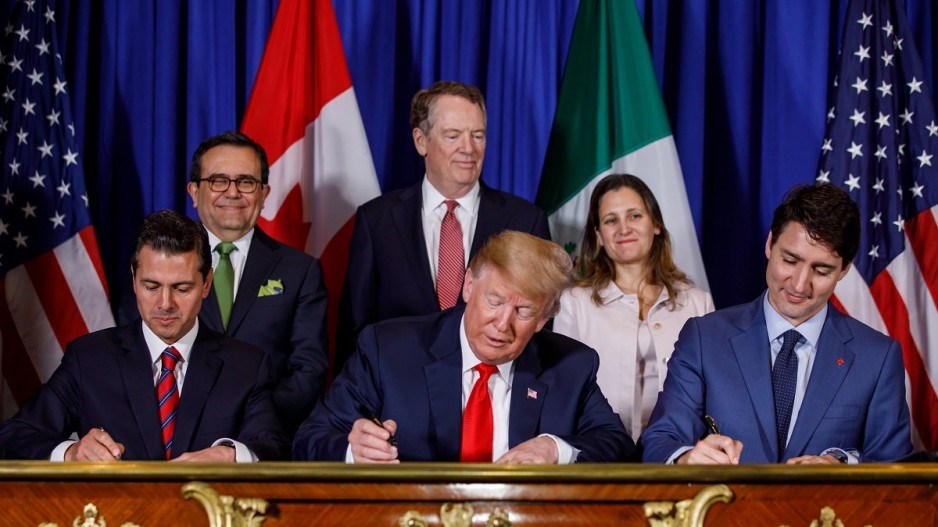Early Friday morning, Prime Minster Justin Trudeau along with U.S. President Donald Trump and outgoing Mexican president Enrique Peña Nieto signed the trade agreement that will replace NAFTA. The agreement was signed at the G20 summit in Buenos Aires, Argentina, despite the fact that tariffs on goods traded between the countries were not lifted.
Justin Trudeau signed the agreement along side his Mexican and American counterparts after some speculation that Canada might not sign the deal if the tariffs remained in place. There was also speculation that Trudeau might pass on the responsibility of eliminating the tariffs to Foreign Affairs Minister Chrystia Freeland who was tasked with negotiating the agreement.
The signing, however, wasn’t necessarily just a formality. According to media reports, the agreement was still being finalized on the eve of final signature. The squabbling was mostly over the final language and details of the bill and the steel tariffs. Canadian officials have reportedly complained about the U.S. trying to change elements of the agreement with the Americans demanding detailed information about Canada’s protected dairy markets.
While the battle is won, the war is not over. The agreement still has to be ratified in all three countries. While ratification is not likely to be a problem, there is still some question about whether Democrats, who now control one house of the U.S. Congress, will support the new agreement. The bill will only need a minority of democrats to pass if all or most of the House Republicans support the bill, giving political leeway to left democrats to vote against the bill without preventing its passage.
There is also some concern with whether the incoming Mexican president Andrés Manuel López Obrador (AMLO) will support the bill, as he has been critical of NAFTA in the past. However AMLO has said that he will not stand in the way of the bill’s passage.
While the new North American trade deal has been signed, there is still one minor dispute regarding the name. While the U.S. will name the agreement the United States Mexico Canada Agreement (USMCA), Canada is moving forward with a different name, something that rolls off the tongue a little better with Canadians, the Canada United States Mexico Agreement (CUSMA).




